Have you ever watched your cat vanish under the bed at the first rumble of thunder or crackle of fireworks? If your answer is yes, you’re not alone. For many cats, loud noises are more than just a nuisance—they’re terrifying. As a cat lover, seeing your furry friend shaking, hiding, or yowling in fear can be heartbreaking. The good news? There are practical, loving ways to help your cat feel safe when the world outside gets loud. Let’s dive into what really works when it comes to soothing your anxious kitty during fireworks or storms.
Understanding Your Cat’s Fear of Loud Noises

Cats are creatures of habit and comfort. Sudden noise disrupts their world in a big way. Fireworks and storms create unpredictable bangs, flashes, and vibrations that can send even the bravest feline running for cover. Unlike dogs, cats don’t usually bark or whine—they hide, freeze, or bolt. This fear stems from their wild ancestors, who relied on quick reactions to survive. For your cat, a thunderstorm might register as a threat, not just an annoyance. Recognizing this fear is the first step in helping your cat feel more secure during noisy events.
Creating a Safe Space for Your Cat
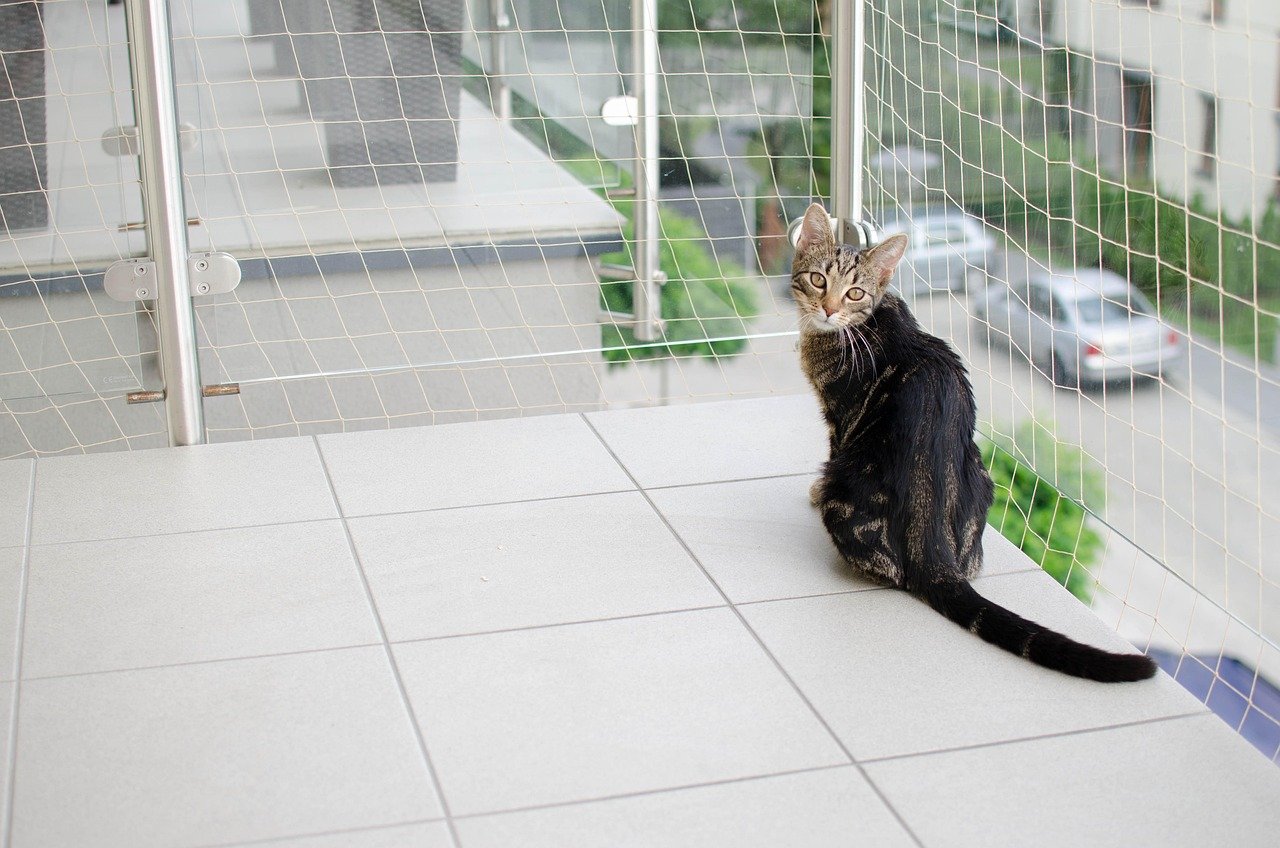
Imagine being scared and having nowhere to hide. That’s how your cat feels if there’s no safe space available during fireworks or storms. Offer a cozy haven—think a quiet room, closet, or even a box lined with their favorite blanket. Ideally, this space should be away from windows and doors where noise and flashes can seep in. You can even use a carrier, if your cat likes it, as a portable den. Having a designated “safe zone” gives your cat a sense of control and comfort when chaos erupts outside.
Preparing in Advance for Noisy Events

Preparation is an absolute game-changer. If you know fireworks are coming (like the Fourth of July), start prepping your home early. Close the windows, draw the curtains, and turn on some familiar background noise. Gather your cat’s favorite toys, treats, and bedding to make their safe area extra inviting. Early preparation means less scrambling later—and a calmer cat when the booms begin. Think of it like prepping for a big storm: you wouldn’t wait until the rain starts pouring to get ready!
Using White Noise or Calming Music

Background noise can work wonders for anxious cats. White noise machines, fans, or soft classical music can help mask the unpredictable sounds of storms and fireworks. The steady hum creates a buffer, dulling the sudden booms and rumbles that spook your cat. Some cat owners swear by playlists made just for pets—think gentle piano or harp music. Experiment with different sounds to find what calms your cat most. It’s like giving your cat noise-canceling headphones, but way cuter.
Blocking Out Visual Stimuli
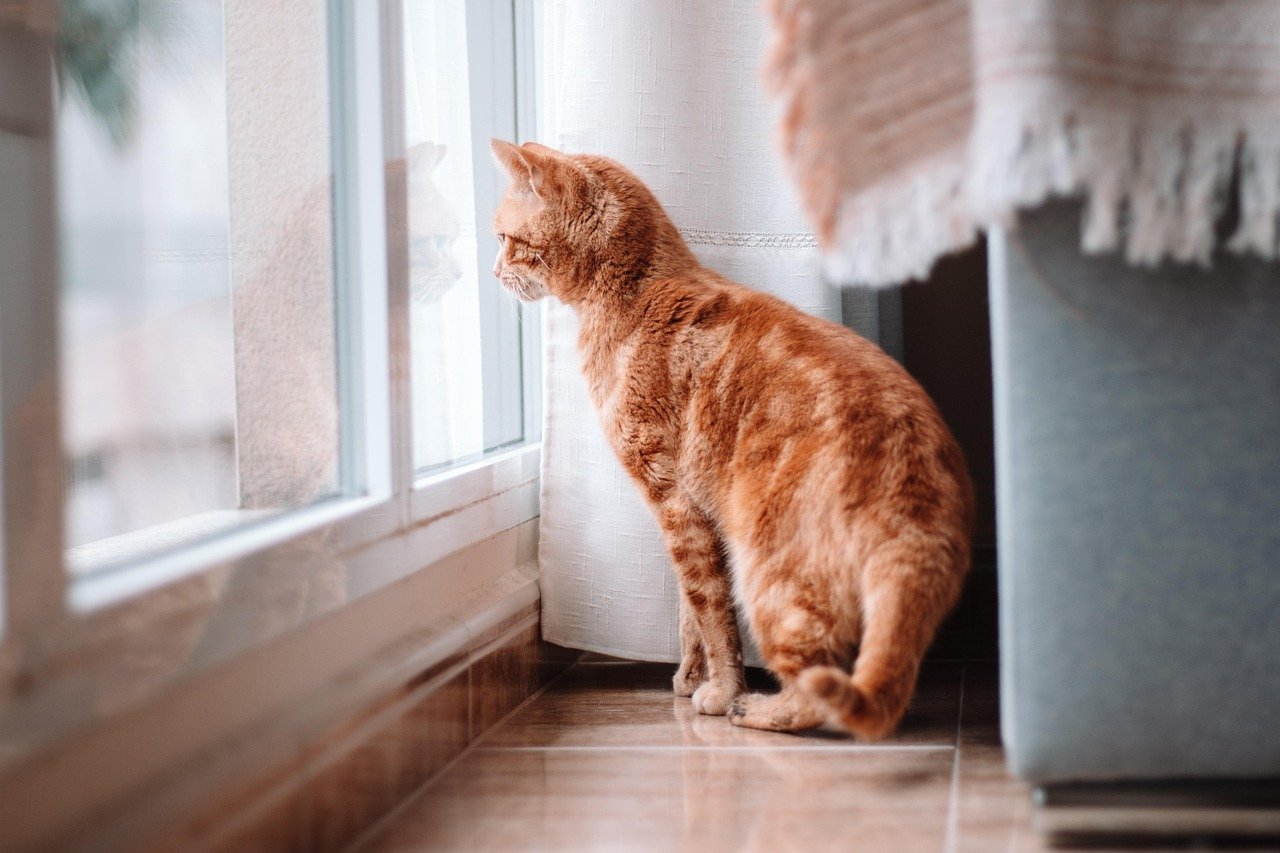
Don’t underestimate the power of a good blackout. Flashes of lightning or fireworks can be just as frightening as the noise. Close blinds, curtains, or even cover windows with thick blankets if needed. Creating a dim, cozy atmosphere helps reduce your cat’s stress. If your cat’s safe space is a carrier or box, drape a towel over it to make it darker and more den-like. It’s a simple trick, but it can make a world of difference for a terrified kitty.
Using Comforting Scents and Pheromones

Cats communicate through scent, so it makes sense that calming smells can help ease their nerves. Synthetic feline pheromones, like those found in diffusers or sprays, mimic the scent of a mother cat comforting her kittens. Plug one in near your cat’s safe space before the storm starts. You can also use items that smell like you—an old T-shirt or blanket—to help your cat feel close to you even if you’re not in the room. The right scent can be an invisible hug for your anxious pet.
Offering Reassurance Without Overwhelming

As tempting as it is to scoop up your scared kitty and smother them with hugs, sometimes less is more. Cats in distress often prefer gentle, quiet company over lots of attention. Sit nearby, talk softly, and let your cat come to you if they want comfort. If they hide, respect their space. Forcing interaction can actually increase their anxiety. Think of yourself as a calm anchor—there if needed, but never overwhelming.
Providing Distractions with Toys and Treats

A little distraction can go a long way. Interactive toys, puzzle feeders, or a sprinkle of catnip can help redirect your cat’s focus away from the storm outside. Try waving a wand toy or tossing a treat-filled ball in their safe space. These activities engage your cat’s brain and can reduce anxiety by giving them something positive to concentrate on. Just remember, not all cats will be interested in play during scary events, so always follow your cat’s lead.
Staying Calm Yourself
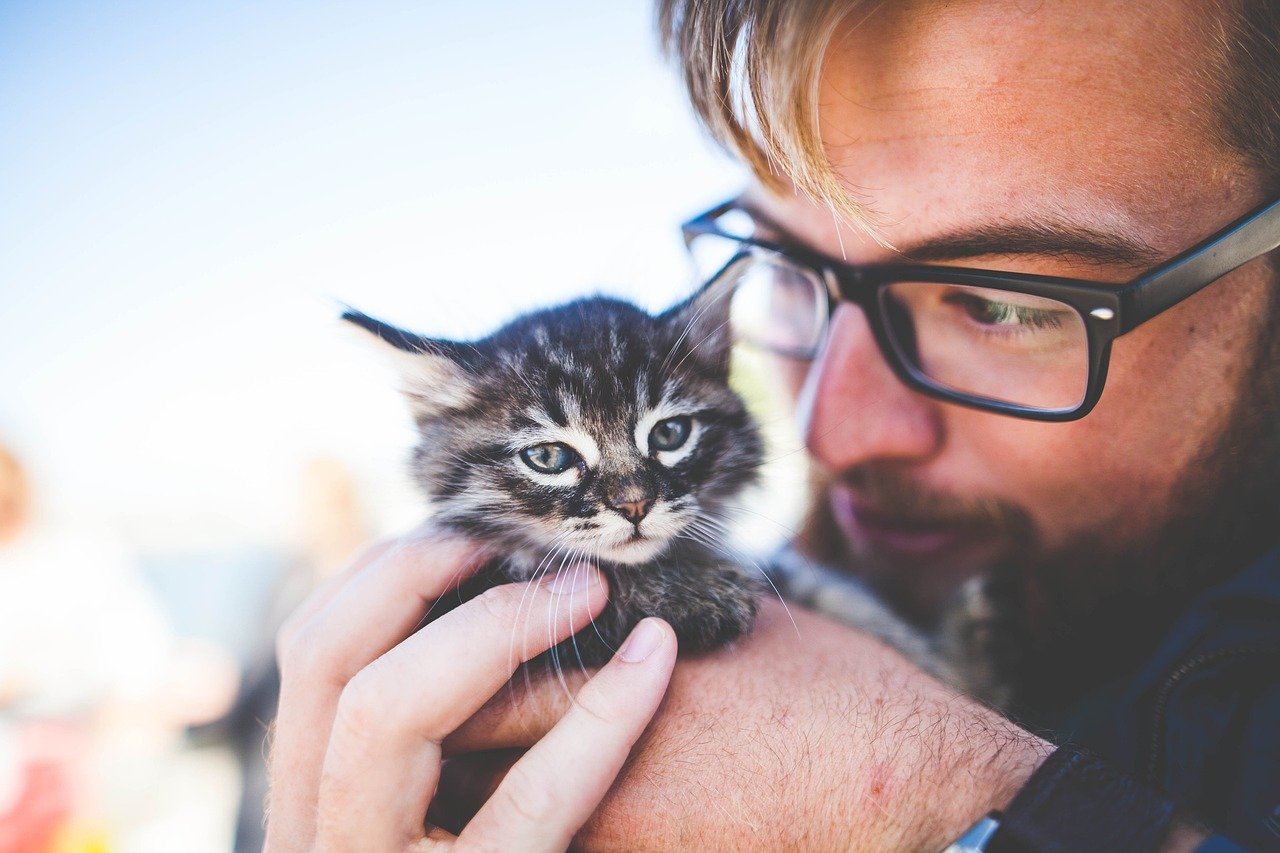
Cats are emotional sponges—they pick up on your mood. If you’re anxious, pacing, or raising your voice, your cat will sense it and may become even more stressed. Take a few deep breaths, speak softly, and move slowly around your cat. If you act like everything is normal, your cat is more likely to believe it. Your calm energy is contagious—it’s one of the best gifts you can give your furry friend during a storm.
Maintaining a Consistent Routine

Routine is a lifeline for cats. Even during storms or fireworks, stick to your regular schedule as much as possible. Feed your cat at the usual times, keep play sessions on track, and don’t suddenly change the household rhythm. Familiar routines provide comfort and predictability in a world that suddenly feels chaotic. If your cat knows what to expect, they’ll feel more secure—even when thunder is booming outside.
Using Anxiety Wraps or Calming Vests

Have you heard of anxiety wraps or calming vests for cats? They work by applying gentle, constant pressure—like a reassuring hug. Some cats respond well to these snug garments, which can reduce panic during storms or fireworks. Try one on your cat before a noisy event to see how they react. Not every cat will love the feeling, but for those who do, it’s a surprisingly effective way to boost their sense of safety.
Trying Natural Remedies and Supplements

There’s a growing market for calming treats, herbal sprays, and supplements designed just for anxious cats. Ingredients like chamomile, valerian, and L-theanine are sometimes used to promote relaxation. Always check with your vet before giving your cat anything new, but many owners find these gentle remedies helpful. Think of them as a cup of chamomile tea for your cat—a little extra comfort when things get loud.
Consulting Your Veterinarian
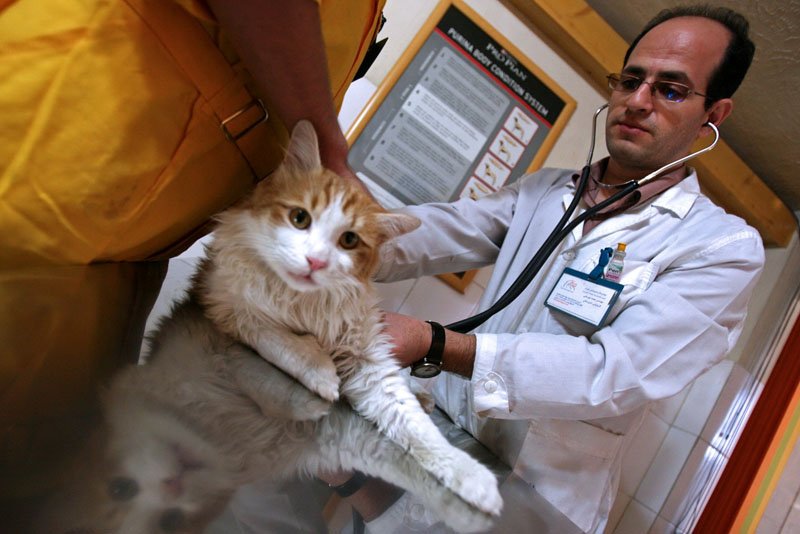
If your cat’s fear is severe—or if nothing seems to help—it’s time to talk with your vet. Sometimes, anxiety is so intense that medication or professional guidance is needed. Your vet can help rule out medical issues, recommend safe treatments, or suggest behavior modification plans. Never feel embarrassed about seeking help; extreme anxiety can be harmful to your cat’s health in the long run. A quick conversation with your vet can make a world of difference.
Recognizing Signs of Severe Anxiety
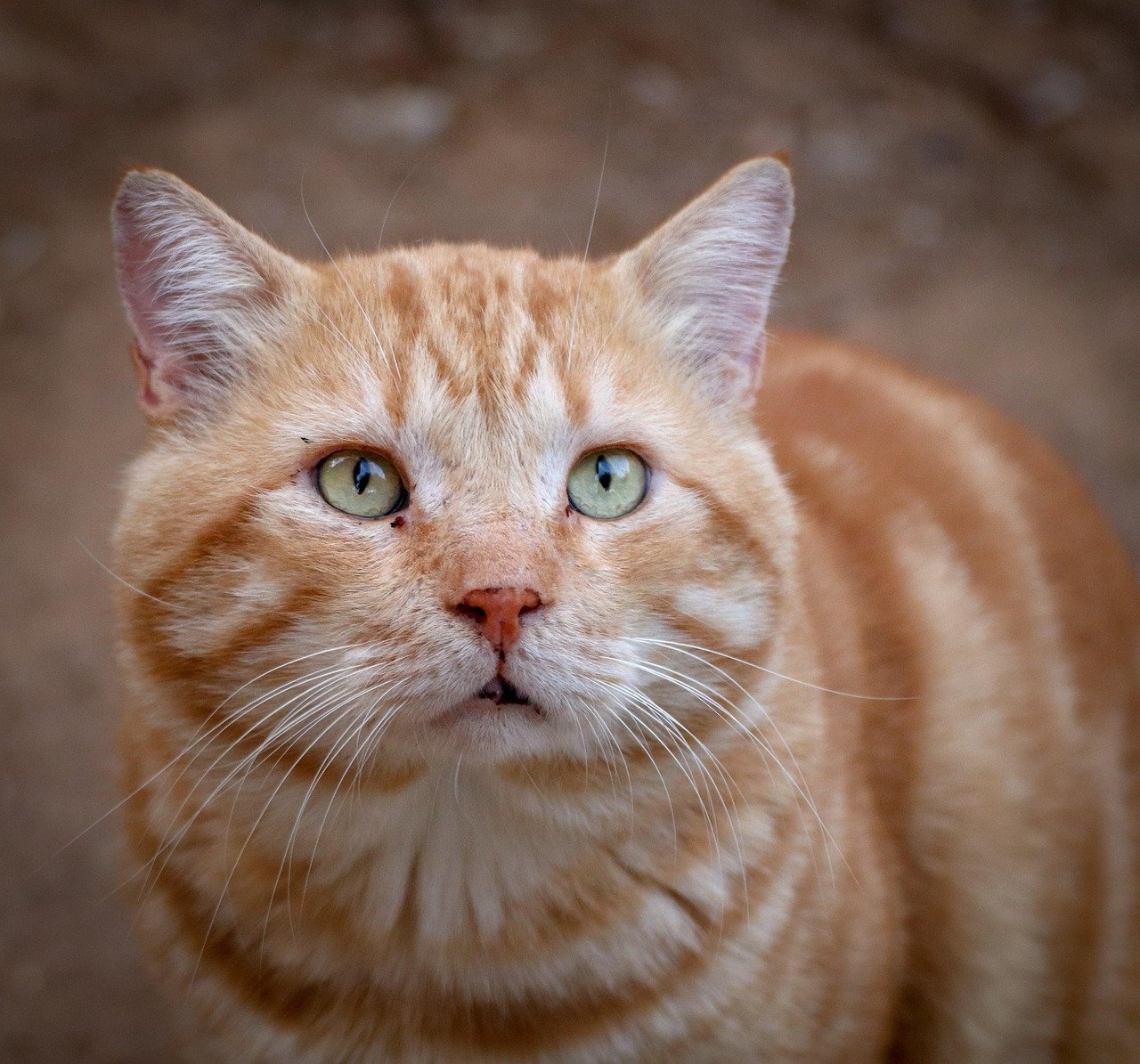
It’s important to know when your cat’s fear crosses the line into something more serious. Watch for symptoms like excessive grooming, loss of appetite, vomiting, diarrhea, or constant hiding—even after the noise is gone. These signs mean your cat’s stress is affecting their wellbeing. Don’t brush it off as “just being dramatic”—your cat is telling you they need help. Take these signals seriously and reach out to a professional if needed.
Using Positive Reinforcement

Cats learn through positive associations. When your cat stays calm during a loud noise, reward them with treats, praise, or gentle petting. Over time, this teaches your cat that storms and fireworks aren’t always bad news—they can mean extra love and snacks, too. Be patient and consistent; it takes time for new habits to form. This method won’t erase fear overnight, but it’s a gentle, effective way to boost your cat’s confidence.
Minimizing Outdoor Exposure

If possible, keep your cat indoors during fireworks or storms. Outdoor cats face more risks—from traffic and frightened flight responses to injury. Secure all doors, windows, and pet flaps before the event starts. If your cat usually roams, entice them inside early with treats or a favorite toy. An indoor environment is much easier to control—and much safer—when things get noisy.
Communicating with Family Members

Everyone in your household should be on the same page when it comes to helping your cat. Let family members know about your cat’s safe space and how to interact with them during loud events. Remind kids to stay calm and avoid chasing or startling your cat. A united, thoughtful approach ensures your cat isn’t caught off guard by unexpected visitors or loud voices. When the whole family helps, your cat feels even more secure.
Planning Ahead for Holidays and Storm Seasons

Certain times of year—like holidays and summer storms—bring predictable noise. Mark these dates on your calendar and prepare in advance. Stock up on calming products, reinforce your cat’s safe space, and set reminders to close windows or turn on white noise. Proactive planning reduces stress for both you and your cat. It’s like prepping for a big test: the more you prepare, the smoother things will go.
Training Your Cat to Tolerate Noises

Just like people can overcome fears with gradual exposure, so can cats. Play recordings of thunder or fireworks at a very low volume while giving your cat treats or playing with them. Slowly increase the volume over days or weeks, always keeping it within your cat’s comfort zone. This helps desensitize your cat to scary sounds, making real events less traumatic. It’s a slow process, but for some cats, it can be life-changing.
Knowing When to Seek Extra Help

Sometimes, despite your best efforts, your cat’s fear remains overwhelming. That’s when it’s time to call in a professional—like a feline behaviorist or veterinary specialist in animal behavior. These experts can develop a tailored plan for your cat’s unique needs. Don’t wait until things are unbearable; extra help is a sign of love and commitment to your cat’s wellbeing.
Accepting Your Cat’s Unique Personality

Every cat is different. Some cats are brave, others are timid, and many fall somewhere in between. Don’t compare your cat to others or feel like you’re failing if they don’t become totally fearless. The most important thing is that your cat feels safe, loved, and supported—no matter what’s happening outside. Accepting your cat’s quirks is part of the joy of being a cat parent.
When thunder is rumbling or fireworks are lighting up the sky, your cat looks to you for comfort and protection. By understanding their fears, preparing their environment, and offering gentle support, you can help your feline friend weather any storm. Isn’t it amazing how much love we can show with just a few thoughtful steps?
Hi, I’m Bola, a passionate writer and creative strategist with a knack for crafting compelling content that educates, inspires, and connects. Over the years, I’ve honed my skills across various writing fields, including content creation, copywriting, online course development, and video scriptwriting.
When I’m not at my desk, you’ll find me exploring new ideas, reading books, or brainstorming creative ways to solve challenges. I believe that words have the power to transform, and I’m here to help you leverage that power for success.
Thanks for stopping by, Keep coming to this website to checkout new articles form me. You’d always love it!






